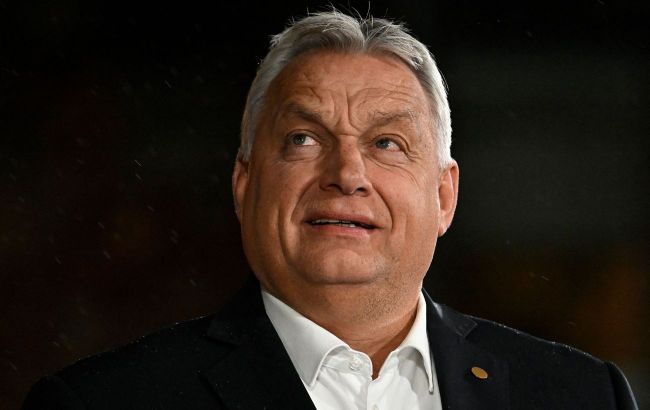Orban openly shifts to Russian positions - Opposition leader in Poland
 Hungarian Prime Minister Viktor Orban (Getty Images)
Hungarian Prime Minister Viktor Orban (Getty Images)
The government of Hungarian Prime Minister Viktor Orban has openly switched to Russian positions. It does not even hide it, according to the leader of Poland's Civic Coalition, Donald Tusk.
"We are dealing with a government that has openly switched to Russian positions," he says, adding that Hungarian Prime Minister Orban does not hide it either.
In particular, he says, the Orban government is blocking decisions that would transfer 800 million euros to Poland.
"I am angry that at the last minute - when they are running for their money and positions for their colleagues - they could not settle with Orban such an important issue for us as 800 million euros for weapons," he says, referring to the government of Mateusz Morawiecki.
Tusk also assures that he will be firm at the European Council.
"I am convinced that from now on, most leaders will take into account the Polish opinion when it comes to Ukrainian issues and when it comes to Hungary and Orban," he says, adding that his convictions would probably not be able to significantly change Orban's attitude, as "his relations with Moscow and Putin are organic."
Orban continues to stand by his anti-Ukrainian position
In turn, Hungarian Prime Minister Viktor Orban continues to oppose the start of negotiations on Ukraine's accession to the EU. He repeated this thesis in an interview with Le Point before he met with French President Emmanuel Macron on December 7.
"The European Commission's report that four of the seven prerequisites have already been fulfilled is simply not true. It is known that Ukraine is one of the most corrupt countries in the world. This is a joke! We cannot decide to start the process of accession negotiations," he said.
He urged the EU not to repeat with Ukraine "the same mistakes we made with Turkey". As an alternative, Orban proposed to conclude a "strategic partnership agreement" with Ukraine, which would include an agreement on various issues such as agriculture, customs, and security.
"It is difficult for Ukraine, it is suffering from the Russian invasion, and we decided to support it. Therefore, it is legitimate for the entire European Council to send good signals to Ukraine. I am in favor of that. However, other types of signals need to be sent than opening negotiations on EU membership. We should not do this," Orban said.
Orban recently suggested that Ukraine's accession to the EU should not be put on the agenda of the December summit, as it is allegedly "clear in advance that there will be no agreement among the countries." In addition, Orban even threatens to disrupt the December summit of EU leaders, which will discuss assistance to Kyiv and the issue of starting negotiations.
For reference
Poland expects to receive up to 900 million euros from the EU for the weapons transferred to Ukraine. The money is to be allocated from the European Peace Fund. In March, Polish Prime Minister Mateusz Morawiecki said that Poland would receive up to €300 million in compensation by Easter, and another €500-600 million in the following months. But such a decision requires the unanimous consent of EU member states. Hungary opposes this tranche to Poland.

